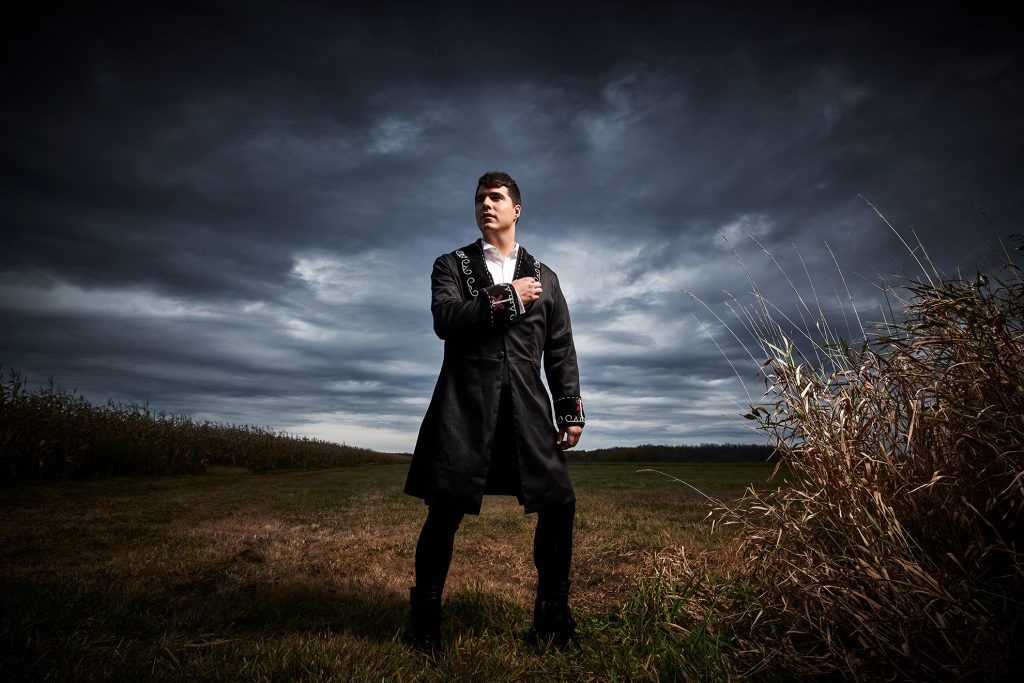Indigenous Musician Jeremy Dutcher Brings Award-Winning First Nations Music to Detroit
Ahead of Dutcher’s performance at the Rivera Court inside the Detroit Institute of Arts, he stopped by the WDET studios to talk about his Polaris-prize winning album an the Indigenous Renaissance happening today.


In 2018, indigenous Canadian musician Jeremy Dutcher released the Polaris-prize winning album “Wolastoqiyik Lintuwakonawa,” a collection of post-classical rearrangements of traditional First Nations music.
Dutcher was raised in New Brunswick and is a member of the Tobique First Nation tribe. Many of the songs are inspired by and directly pulled from 110-year-old wax cylinder recordings of his ancestors — the Wolastoq of eastern Canada. Dutcher worked with the Canadian Museum of History to bring the project to life.
During his tour stop in Detroit earlier this month, Dutcher stopped by WDET studios to talk about the project and share songs from the album including “Ultestakon,” which features one of the more than a century old recordings.
“That was an ancestor of mine from 1907,” says Dutcher. “It’s been such a wonderful passion project to go into the museum and, in a way, take our [expletive] back and to repatriate this stuff that has been taken from us for a long time.”
Dutcher’s preservation is a critical one as much as it is a groundbreaking artistic feat. The Canadian government’s Indian Art banned ceremonial songs and dances in public for decades, so many of the songs that Dutcher rearranged and performed honored forgotten elements of Wolastoqiyik culture from generations ago.
